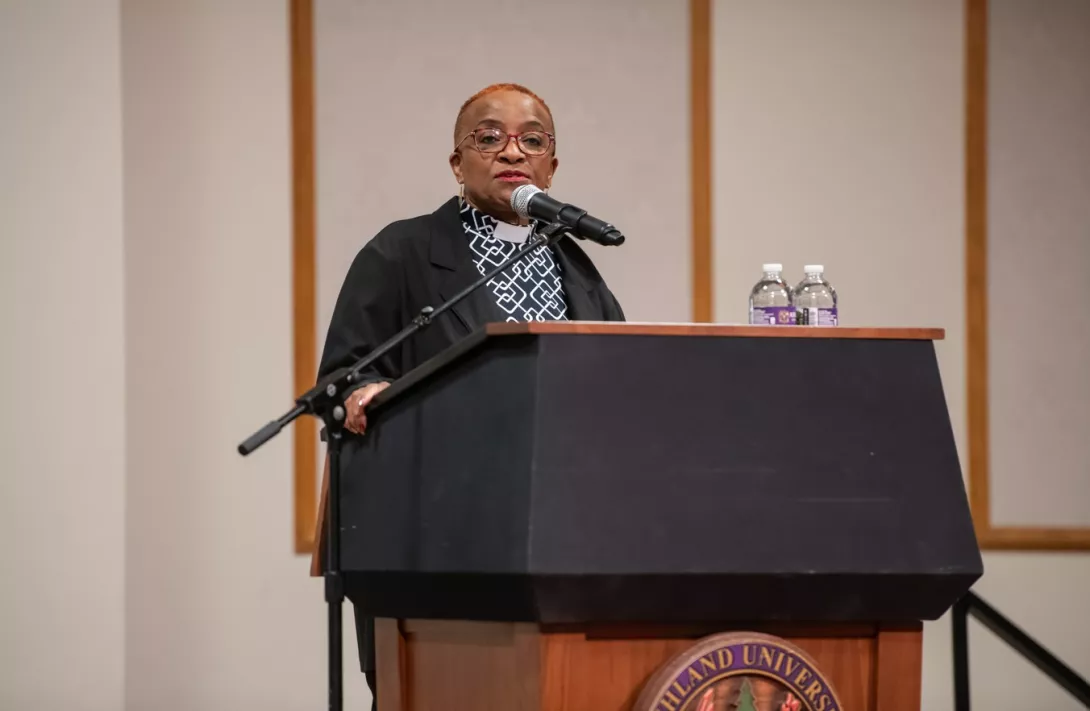
The Rev. Naomi Tutu offers advice on how to achieve a just world
She’s a much sought-after speaker, educator and consultant, as well as an activist, ordained minister and daughter of Nobel Peace Prize laureate Desmond Tutu.
After her talk Tuesday at Ashland University, the Rev. Naomi Tutu also could add advice columnist to her long list of titles.
While kicking off the Ashland Center for Nonviolence’s Season for Nonviolence in the Convocation Center, Tutu offered advice on how to achieve a just world, both in her speech and then while responding to questions after it – kind of like an advice columnist.
“We have to start, first of all, in believing that justice is possible for everyone,” she said early in her free, open-to-the-public presentation, “Striving for Justice: Searching for Common Ground,” offering her first piece of advice.
Some of the other advice she offered included:
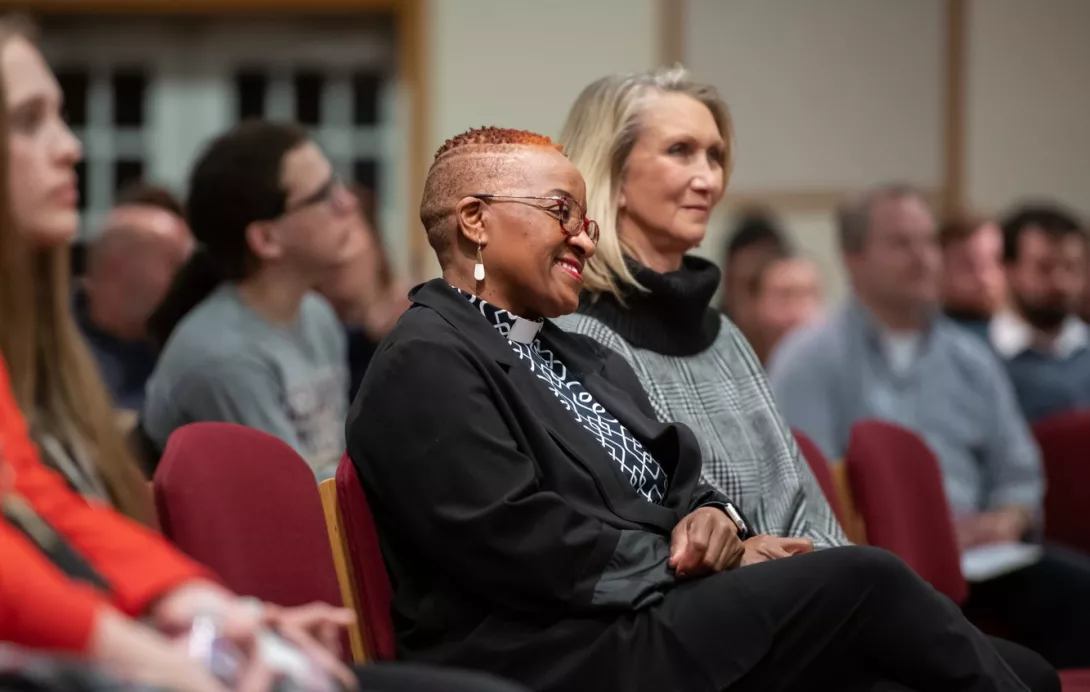
Let the child cry on its mother’s back or it will die.
Even Tutu said this bit of advice, actually an African proverb that says “The child that does not cry on its mother back dies,” confused her, too, when she was growing up in apartheid South Africa because she admitted to being too literal-minded then.
“The baby that does not cry is actually about speaking up for justice,” she said. “If you do not speak up (a baby crying), then how are people going to hear, to know what needs to be done?”
Tutu said her favorite African proverb was: “In times of floods, the wise build bridges and the foolish build walls.”
“When I first heard that, my first reaction, being literal-minded, is it’s a flood, get out, you don’t need to be building anything,” she said with a laugh. Then in a serious tone, she added: “What the message is that in times of crisis, the wise reach out. They look for new allies. They look for new people to aid them in a difficult time, while the foolish build walls. They separate themselves even more from others around them.
“They seek scapegoats,” she continued. “They look for ways to blame someone else for what is happening rather than seeking those who can help them solve the problem. And that proverb to me is the core of ‘Striving for Justice: Seeking Common Ground.’”
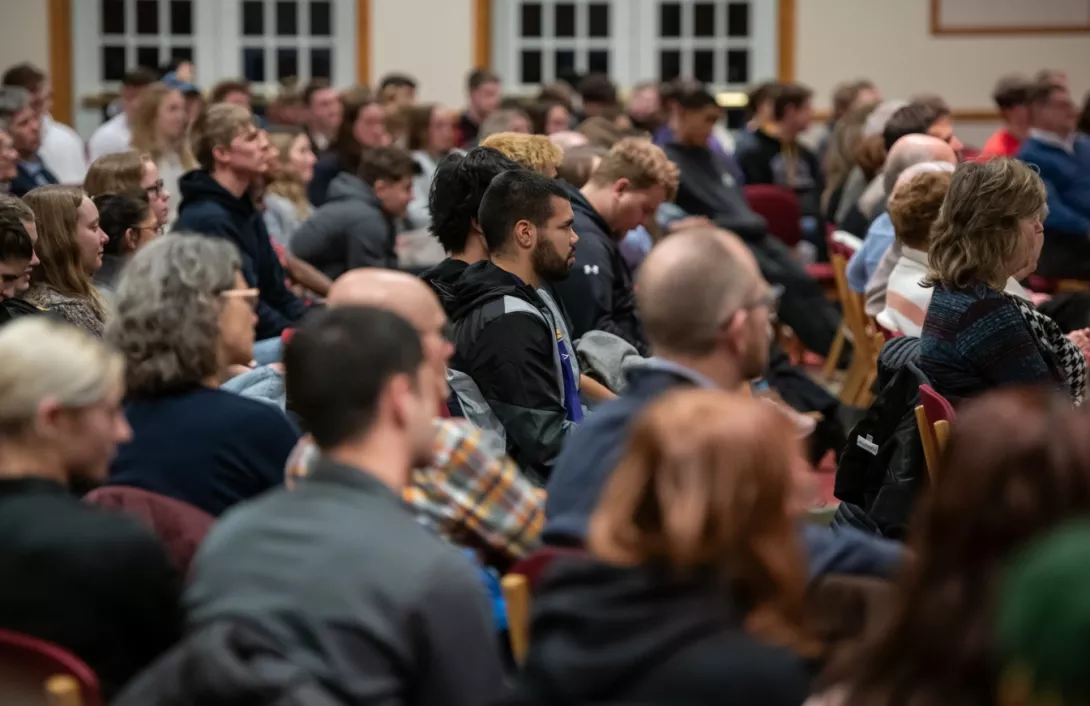
We have to move out of places of comfort.
“I don’t blame people for having places of comfort,” Tutu said. “We are who we have been raised to be. We are told stories and histories from a certain perspective that tell us who we are, why we are who we are and how we got to where we are.”
To move out of places of comfort, Tutu said we have to be willing to acknowledge the tapes of the stories and histories in our minds about ourselves and others, which usually tell us what wonderful people we are and how wonderful that community we come from is and what is lacking in those we know as others.
Tutu said she had to move out of her “places of comfort” when she served as a coordinator for programs on race and gender at the African Gender Institute at the University of Cape Town. She also has been educated in Swaziland, the U.S. and England; taught at the University of Hartford, the University of Connecticut and Brevard College; and divides her time between South Africa and America.
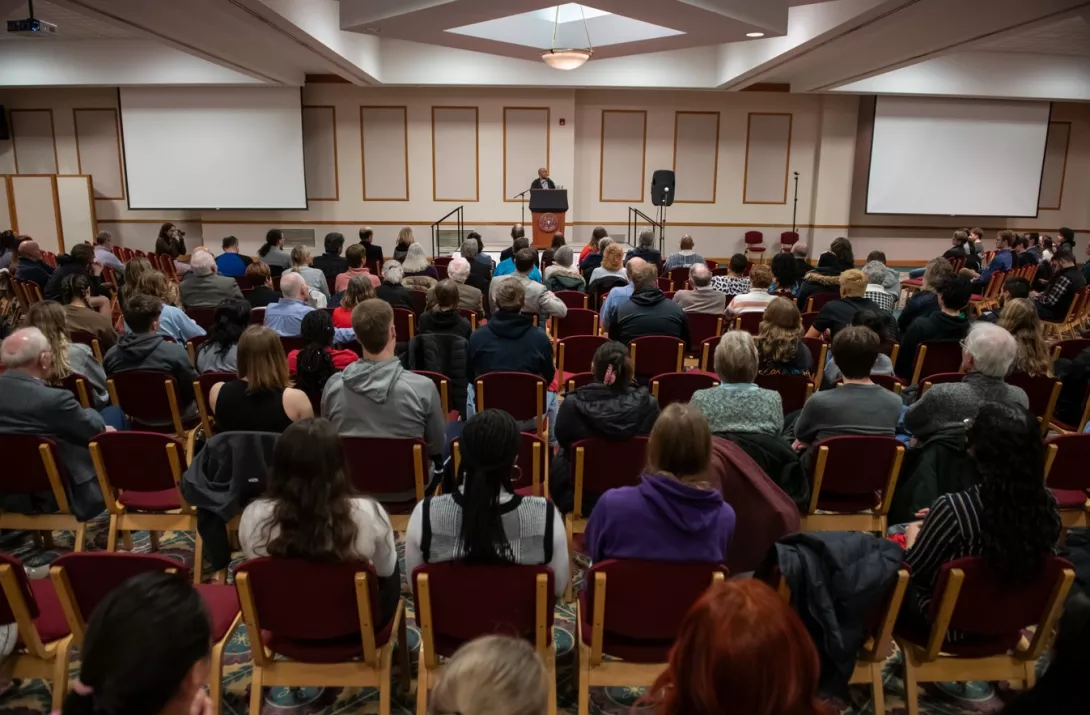
Be wary of people who say they don’t see color or differences, just human beings.
“When someone says to me ‘I don’t see race, I don’t see differences.’ I say, ‘Go back and start again because that is not the process that is going to move us forward,’” said Tutu, who founded Nozizwe Consulting. The guiding principle of Nozizwe, which means Mother of Many Lands, is to bring different groups together to learn from and celebrate their differences and acknowledge their shared humanity.
Tutu said she isn’t ashamed of her race and culture but hasn’t liked some of the experiences she has had as a Black woman, especially living in apartheid South Africa.
Apartheid was a system of racial segregation and discrimination which existed in South Africa from 1948 to the early 1990s that was enforced by the white minority government.
“I believe God created me a Black woman because God needed me as a Black woman in this world at this time,” Tutu said.
The many ways we are different are absolutely necessary for the thriving, and the survival even, of our communities, country and world, Tutu told the crowd.
“Each of us come with stories, with gifts, with challenges and with ideas,” she said. “If we close the door to someone because of the way they look, because of the way they worship, because of the way they love, then we are closing off an opportunity for ourselves to live a fully just world.
“We need each other,” she added. “We cannot survive, let alone experience the justice that is God’s peace, without recognizing and celebrating our shared humanity.”
We should be like children who notice differences and want to learn about them, Tutu said.
“All the time children ask questions about differences because they want to expand their mind of the world,” she said. “If we are those who say we strive for justice, then we have to start by being those who want to expand our knowledge of the world, to hear the stories that are not our story, to understand how people come to be in the situations in which they find themselves.”
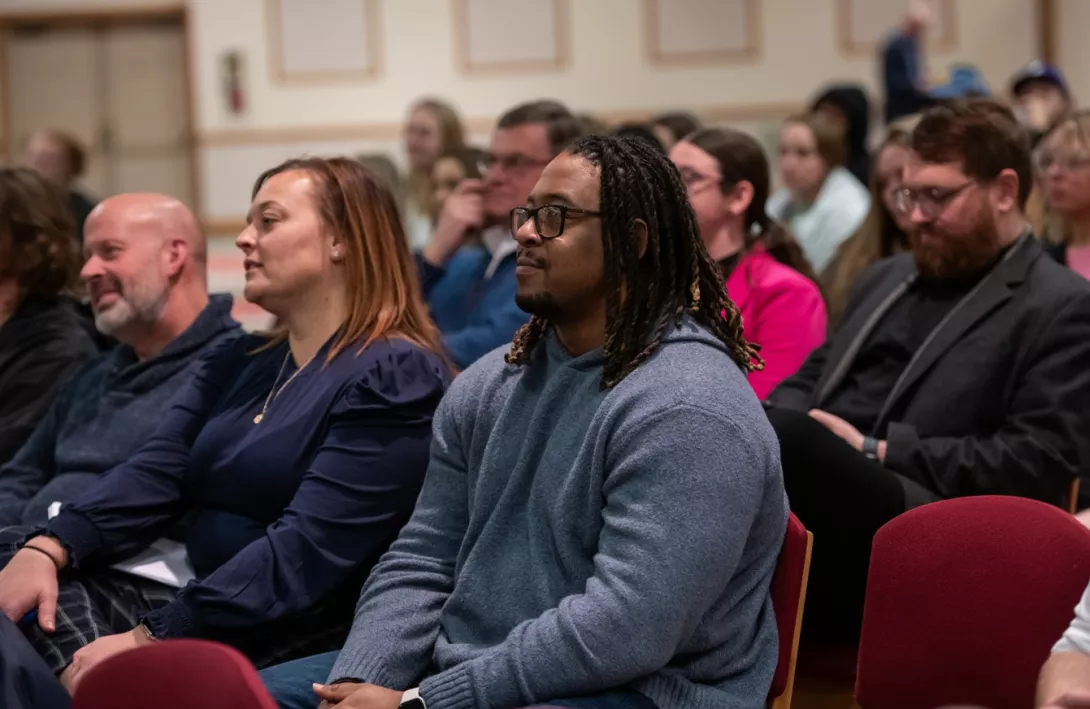
Have political discussions at the Thanksgiving table
This advice came in response to someone asking her if she has come across ways to bridge the gap among politicized social issues that have become very divisive among party lines.
Bringing people of different political persuasions together can be difficult but can be done by starting with us as individuals and our families through difficult conversations, Tutu responded.
“I believe if we are saying we are building our family and building our community, then we each need to tackle as a family and as a community the issues that divide us,” she said. “For us to be able to truly move forward, it often starts with one person. All those conversations we have to start with where we are.”
“Where we are” now with the Ashland Center for Nonviolence, which is celebrating its 20th anniversary, is in the midst of its Season of Nonviolence, which started Jan. 30 with Tutu’s keynote address and continues through April 4, marking the period of time from Mohandas Gandhi’s assassination to Martin Luther King Jr.’s assassination.
The next Season for Nonviolence presentation will be by a visiting scholar from Yad Vashem (The World Holocaust Remembrance Center) titled “Knowledge and Lack of Knowledge in the Holocaust” on Thursday, Feb. 15 at 7 p.m. in the John C. Myers Convocation Center Trustees Room.
